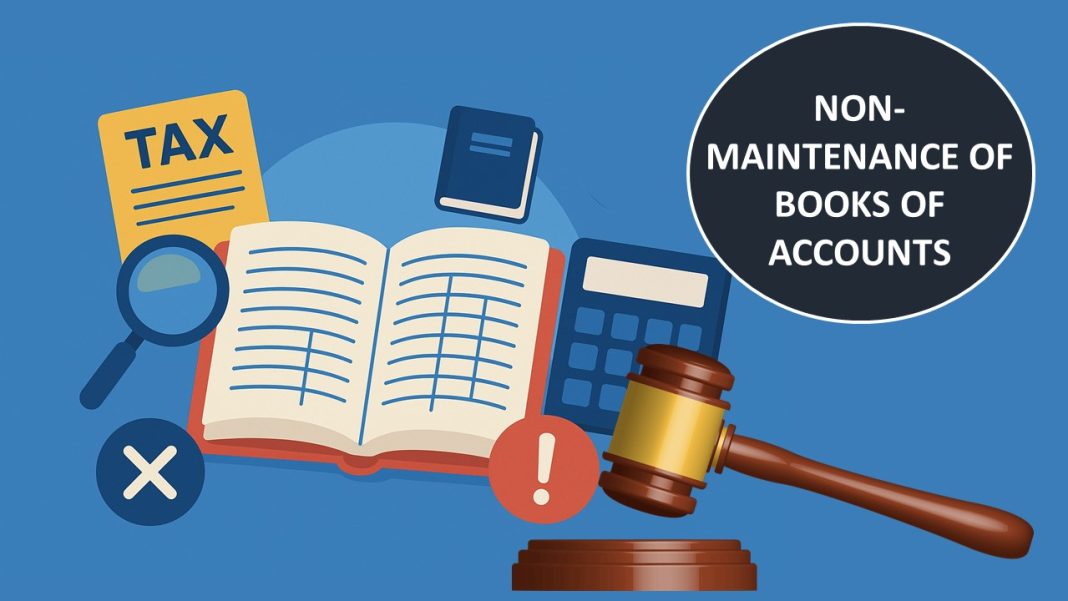Section 271B Penalty Cannot be Levied If Books of Accounts Not Maintained: ITAT
The Income Tax Appellate Tribunal (ITAT), Delhi, in one of its recent rulings, has held that if the assessee has not maintained the books of accounts, getting it audited does not arise at all. Holding this, the tribunal deleted the penalty under Section 271A and Section 271B of the Income Tax Act.
The assessee, Shri Antriksh Gupta, a proprietor of an Amul Milk Dairy booth, filed his income tax return (ITR) on 26.07.2017, reporting an income of Rs 2,69,190. His return was selected, and the return was accepted. However, during the proceedings, the Assessing Officer found that the assessee had not maintained books of accounts and also did not get them audited, even though his declared income exceeded the turnover limit. Therefore, the AO started penalty proceedings under sections 271A and 271B for non-maintenance and failure to get books of accounts audited, respectively.
Since the assessee did not properly comply, the AO concluded the penalty proceedings because they were getting barred by the limitation. A penalty of Rs 25,000 for the non-maintenance of the books of accounts and Rs 1,3,30,444 (0.5% of the turnover of Rs 2,66,8,989) for failure to get the books of accounts audited. The assessee also filed an appeal before the CIT(A) but did not succeed, so he filed an appeal before the Income Tax Appellate Tribunal (ITAT), Delhi.
The assessee claimed that his father’s email was mentioned in the Appeal Memo. However, due to the illness and death of his father in March 2024, the communication and hearing were affected, and he could not ensure compliance before the CIT(A), which led to the ex parte order.
The assessee explained that he believed that the surplus and commission earned from the sale of Amul Dairy Products were his business receipts, and the remaining sale proceeds were the receipt of the supplier (Amul Cooperative Milk Federation). He submitted that the majority of the amounts were paid back to the supplier. Therefore, the assessee, in bona fide belief, did not maintain the books of accounts. He further argued that since he did not maintain the books of accounts, the question of getting it audited did not arise, so the penalty under Section 271B should not be levied.
The ITAT cited the decision of the Hon’ble Supreme Court in the case of Hindustan Steel Ltd. 83 ITR 26, where it held that penalties are not imposed unless the taxpayer has deliberately violated the law. In the current case, the assessee had a bona fide belief that his business receipts were commission, not requiring the maintenance of the books. The tribunal said that there is no proof submitted by the income tax department that proves that the assessee had intentionally violated the law. Therefore, the Tribunal deleted the penalty under section 271A.
Regarding the second penalty under section 271B, the Court observed the decision of the Hon’ble Allahabad High Court in the case of Bisauli Tractors [2008] 299 ITR 219, which held that if no books of accounts are maintained, the penalty under section 271B cannot be levied. Based on this decision of the Allahabad High Court, the Tribunal held that if the assessee has not maintained the books of accounts, getting it audited does not arise at all. Therefore, the penalty under section 271B was also deleted.
Case Citation: Shri Antriksh Gupta Vs Income Tax Officer (ITAT Delhi); ITA No.2420/Del/2025; 30/10/2025; 2017-18



